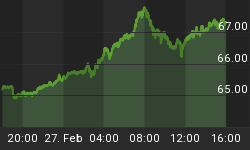Silicon Valley tech giants could be hit by a new plan in the UK that would tax their locally-generated revenues for the first time and render London a much less attractive venue. But with the European Union eyeing a similar digital tax, tech firms may soon run out of options.
The new tax plan was part of the 2018 budget proposal by UK Chancellor of the Exchequer Philip Hammond, and it would levy a 2-percent tax on all revenues derived from UK-based users beginning in April 2020.
Before implementation, the new plan will have to go through a consultation period, and is being described as a temporary measure until “an appropriate long-term solution” is found.
After all, London needs as many hands on deck as possible to help foot the bill for Brexit, which will see it leave the European Union in March 2019, and British authorities have long said that tech giants aren’t paying their fair share—an accusation Silicon Valley has vehemently denied.
What’s irking London is partly demonstrated by Amazon, which employs some 27,000 workers in the UK. Despite profits of over £72 million, the e-commerce giant only paid £1.7 million in taxes in the UK, according to the BBC. That’s thanks to a loophole that allowed them to defer part of their tax payment, partly by using share-based payments for workers. On average, Amazon’s full-time warehouse workers received shares worth more than £1,000 annually. It’s fully within Amazon’s legal rights.
"Corporation tax is based on profits, not revenues, and our profits have remained low given retail is a highly competitive, low-margin business and our continued heavy investment,” the BBC quoted Amazon as saying in August.
With the new tax plan, the UK government is hoping to raise more than $512 million annually, based on current revenues.
It’s a tax that Hammond says reflects the UK’s coming of (digital) age. Related: A Sober Look At The Biofuel Boom
“The rules of the game must evolve now if they are to keep up with the digital economy,” Hammond told members of Parliament. “The UK has been leading attempts for international corporate tax reform... but progress is painfully slow…We cannot talk forever so we will now introduce a UK digital services tax.”
So, as of April 2020, tech giants may no longer be able to calculate taxes on company profits, but the new tax plan won’t harm smaller tech companies and startups. This is about the money-making giants.
While companies such as Amazon, Google, Facebook and Apple have been a boon for foreign venues in terms of employment and money flowing through the economy, in terms of revenue for the countries hosting them, they’ve been less than beneficial.
While Amazon provides a good example of the rationale behind the tax, some feel that Apple is the big target here because of its high revenue in Europe that ends up going through its headquarters in Ireland, a low-tax safe haven.
In fact, in September, Apple paid the Irish government £12.7 billion after the European Commission ruled that it owed that much because it had been riding by on illegal tax breaks. That ruling followed another one by the Commission in 2016, categorizing Apple’s less-than-1-percent effective tax rate as illegal state aid. Apple is appealing the decision.
While some maintain that the proposed new tax is still too low at 2 percent, considering that both Amazon and Apple have achieved trillion-dollar market caps, others worry that the UK—and even Europe—may end up biting the hand that feeds them.
"To safeguard the principles of fairness and integrity in tax policy, any tax on the activities of corporations should be linked to profit, not revenues," Digital Europe—the group representing the tech industry in the region--said in a letter to European ministers earlier this month, carried by CNN.
Related: Morgan Stanley Defies Wall Street With Bearish Talk
And this isn’t just about the UK, which is what has tech giants worried.
The European Union is working on a wider proposed tax that would see a 3 percent levy on tech giants, and seek to raise some $5.6 billion annually.
The U.S. Senate Committee on Finance has taken its criticism even further, penning a letter to the European Commission earlier in October, suggesting that its tax plans “discriminate against US companies”. They also suggested it was political, saying that “the big companies have been dominant and this is a political effort to allow some UK or European companies to compete”.
Whether it’s part of the intensifying trade war, with political undertones, or whether it’s just Europe trying to collect their dues from companies that are making a killing, this Europe-wide movement on taxes does not bode well for the tech giants.
By Josh Owens for Safehaven.com
More Top Reads From Safehaven.com:
















